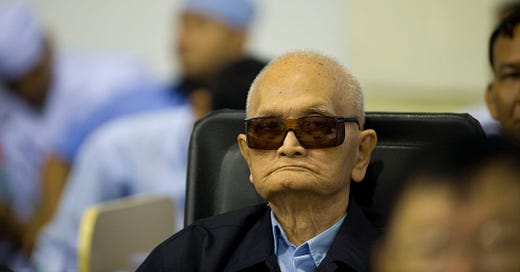Why the Recognition of Crimes for Which There Is No Statute of Limitations Is Crucial for the Security of Democracies
Extraordinary Chambers in the Courts of Cambodia (ECCC) finds Nuon Chea and Khieu Samphan guilty and gives them both life sentences for crimes against humanity. 7 August 2014. Source: Extraordinary Chambers in the Courts of Cambodia
International law has established, particularly since the end of the Second World War and the Holocaust, a series of bind…




